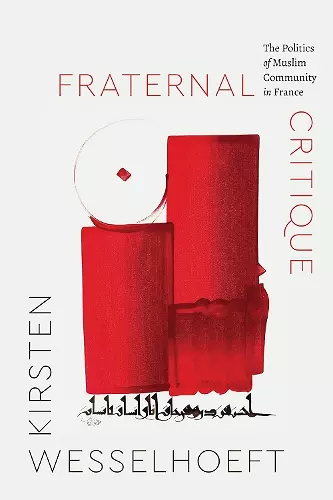Fraternal Critique
The Politics of Muslim Community in France
Format:Paperback
Publisher:The University of Chicago Press
Published:22nd Mar '25
Should be back in stock very soon

An exploration of ways that discord binds rather than divides communal life, through an ethnography of French Muslim activism.
The conversation about Islam in France is framed by the presumption that Muslim communities are a threat to secular solidarity or fraternité. In the face of state repression, French Muslims have not closed ranks around a narrow range of voices; instead, Kirsten Wesselhoeft finds that young Muslim activists have continued to purposefully spark debate about the values that anchor community life. Wesselhoeft argues that such disagreements, far from dividing communities, actually constitute a form of belonging. Some activists call this ethic “fraternal critique,” and Wesselhoeft finds in it profound insights about the place for critique in civic life. The French state has reacted to Muslim solidarity with repression, but Wesselhoeft argues that unity need not come at the expense of dissent. Instead, fraternal critique can teach us how to build communities that are worth fighting over and fighting for.
“In her wide-ranging and clearly conveyed ethnographic work, Wesselhoeft has succeeded in drawing a comprehensive picture of the efforts of a young generation of Muslims to build new institutions of learning in the greater Paris region. She deftly traces ways in which these young Muslims anchor their piety in lively debates about individual rights and women’s autonomy and in doing so gives the lie to misleading rhetoric labeling Muslims as ‘communalists.’” -- John R. Bowen, Washington University in St. Louis
“A gifted ethnographer, storyteller, historian, and ethicist, Wesselhoeft brilliantly explores in this book how Muslims in France organize and respond to state-supported hostility and racism. Her central concept, ‘fraternal critique,’ allows for an analysis of debates within social and political movements that does not reduce argument to infighting or division. Instead, Wesselhoeft suggests that it is in the arguing itself that solidarity is practiced and community constituted.” -- Juliane Hammer, University of North Carolina at Chapel Hill
ISBN: 9780226838281
Dimensions: 229mm x 152mm x 18mm
Weight: 286g
224 pages